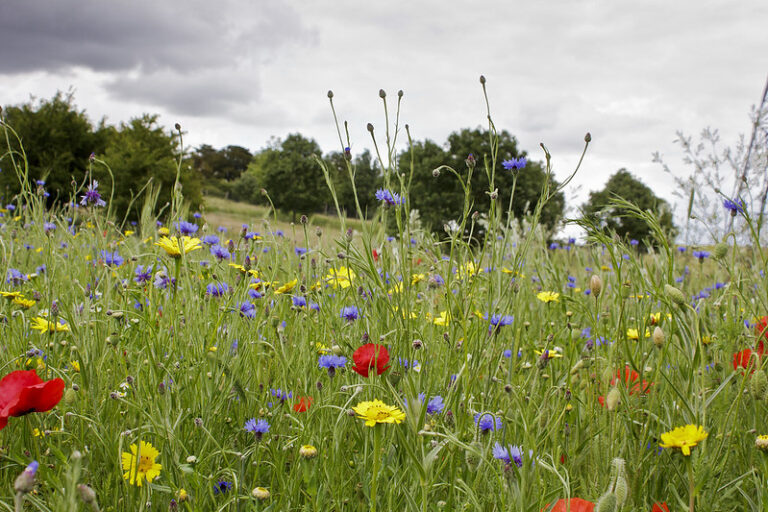Harnessing England’s Biodiversity Net Gain legislation to amplify urban flood risk management

Download
The Biodiversity Net Gain (BNG) legislation came into effect in England from February 2024 and represents a significant shift in planning regulations. Now that the legislation exists – and a new government is in place – this policy report presents the case for integrating BNG and natural flood management to enhance urban resilience, including integration of BNG funding with local authorities’ natural flood risk management projects. This can best be achieved through appropriate policy measures, better leveraging of insurance underwriting solutions, and research and collaboration. The report sets out recommendations for national government, local authorities, the insurance sector and others, intended to help amplify the legislation’s impact.
Main messages
- Nature-based solutions, such as the creation of urban green spaces, parks and wetlands, and the restoration of natural waterways, can contribute to flood mitigation while enhancing urban biodiversity. However, there are persistent challenges in operationalising and scaling up nature-based solutions, not least in an urban context due to inherent space constraints.
- BNG is an approach to development and land management that aims to leave the natural environment in a measurably better state than before. BNG enables nature, and nature is good for flood risk management.
- The introduction of the BNG legislation in England represents a key opportunity because it could unlock funding and innovative solutions that boost urban flood risk management efforts and facilitate wider co-benefits.
- BNG funding sources could be targeted at existing urban flood risk management plans, and benefit from the monitoring of those plans’ effectiveness.
- To date, much of the focus on BNG has been on large aggregated parcels of land outside urban centres. BNG legislation favours net gain to be achieved as close as possible to the development site; finding ways to use that intent to incentivise urban green space would be a positive step forward.
- The insurance sector can play an important role by developing innovative insurance solutions designed to protect biodiversity and its maintenance/restoration over time – essentially de-risking investments in BNG/natural flood risk management.
- However, care is needed to ensure that a focus on natural flood risk management does not come at the expense of biodiversity: the objective should be to enhance biodiversity while also achieving co-benefits, including natural flood risk management. Guardrails are needed to mitigate against technically permissible, but detrimental, trade-offs or overly simplistic solutions.
- While the BNG legislation is now enacted, there is uncertainty about what the future FRM and planning framework will look like – but also an opportunity to get it right. The legislation could have transformative potential if implemented effectively.

